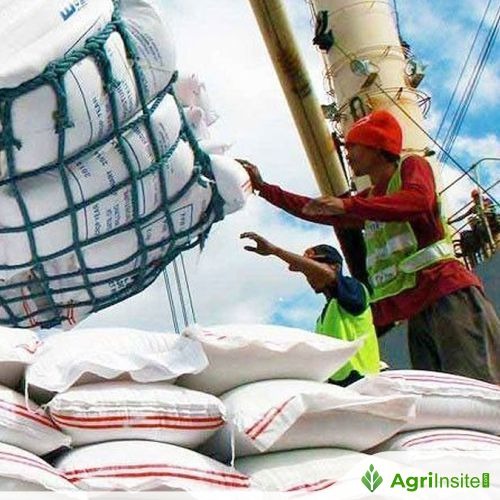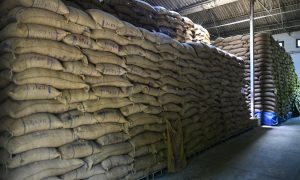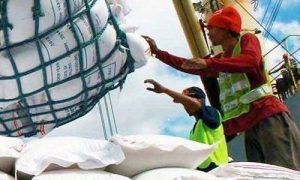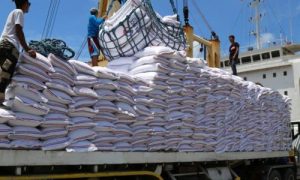Vietnam revises rice export laws to boost transparency and farmer income

Vietnam has amended Decree 107 to streamline rice trading, aiming to stabilize domestic prices and improve farmer livelihoods. The updated Decree 01/2025/ND-CP enhances transparency and governance, while promoting high-value rice varieties for premium export markets. Officials also back a one-million-hectare low-emission rice initiative.
The government is revising Decree 107 to streamline regulations in rice trading, aiming to stabilize prices and improve livelihoods for millions of farmers.
The revision of Decree 107/2018/ND-CP on rice trading and exports has been widely anticipated by industry stakeholders, who hope the changes will foster a more transparent and healthy business environment. The ultimate goal is to enhance the efficiency of the rice value chain and improve incomes for farmers.
Improving the legal framework

After seven years in effect, Decree 107 has significantly influenced Vietnam’s rice export activities. However, according to the Import and Export Department under the Ministry of Industry and Trade, practical implementation has revealed several shortcomings that must be addressed.
In response, the Vietnamese government issued Decree 01/2025/ND-CP on January 1, 2025, amending several provisions of Decree 107. This move reflects the government’s continued commitment to strengthening rice export governance.
The new decree introduces clearer, more consistent management solutions to ensure domestic food security, stabilize rice prices, and enhance quality and branding efforts. These measures are seen as essential steps to accelerate Vietnam’s rice export activities.
Deputy Director of the Import and Export Department, Tran Thanh Hai, noted that the ministry has hosted multiple meetings and workshops to gather feedback on the draft amendment to ensure that the updated legal framework is aligned with current business conditions and practical challenges in rice trading.
He emphasized that the ministry has adjusted several provisions based on input from businesses and individuals in the industry to make the legal environment more transparent, effective, and adaptable.
Rice production plays a critical role in Vietnam’s economy, providing livelihoods for millions of farmers. Despite its global ranking as one of the leading rice exporters, the domestic industry still grapples with structural weaknesses, particularly in the production and distribution value chain.
Experts stress the need for better regulatory mechanisms to support the sale of rice at fair prices while maintaining price stability within the country. A more robust cooperation framework between producers, regions, and exporters is essential to ensure consistent supply and eliminate short-term profiteering practices.
Redefining Vietnam’s rice export strategy
Commenting on market expansion, Dr. Le Quoc Phuong, former Deputy Director of the Ministry of Industry and Trade’s Information Center for Industry and Trade, stated that instead of competing on output, Vietnam should pivot toward high-value rice products such as organic rice, fragrant rice, Japonica rice, and low-emission varieties.
These products are in high demand in premium markets like the EU, Japan, South Korea, and Canada, where consumers are willing to pay higher prices for products that meet strict quality and food safety standards. Vietnam’s Ministry of Agriculture and Environment’s “One Million Hectares of High-Quality, Low-Emission Rice” program is expected to play a pivotal role in this transition.
The Ministry of Industry and Trade is also stepping up trade promotion efforts to diversify Vietnam’s export markets. In addition to traditional destinations like China, opportunities are emerging in Africa, the Middle East, and South Asia, provided businesses can tailor packaging, logistics, and products to meet local requirements.
Recent trade agreements with countries like Indonesia, along with planned expansion into China, Bangladesh, and Ghana, represent strategic steps toward stabilizing export markets in an increasingly volatile global environment. Enterprises are also encouraged to leverage free trade agreements to broaden their market reach.
“Exporters now face increasingly strict technical regulations,” warned Dr. Phuong. “The government and trade associations must proactively negotiate at the governmental level, build counter-technical barriers, and use trade defense tools to protect Vietnamese rice in global markets.”
Deputy Minister of Agriculture and Environment, Phung Duc Tien, added that his ministry is accelerating the implementation of the one-million-hectare initiative to secure a sustainable supply of high-quality rice. The ministry is also raising awareness of the program and actively inviting businesses to partner with farmers and cooperatives in building scalable, low-emission rice production models.
Meanwhile, the government continues to support farmers with technology transfer, mechanization, and best practices in rice cultivation.
To Read more about Rice News continue reading Agriinsite.com
Source : Vietnam Net















